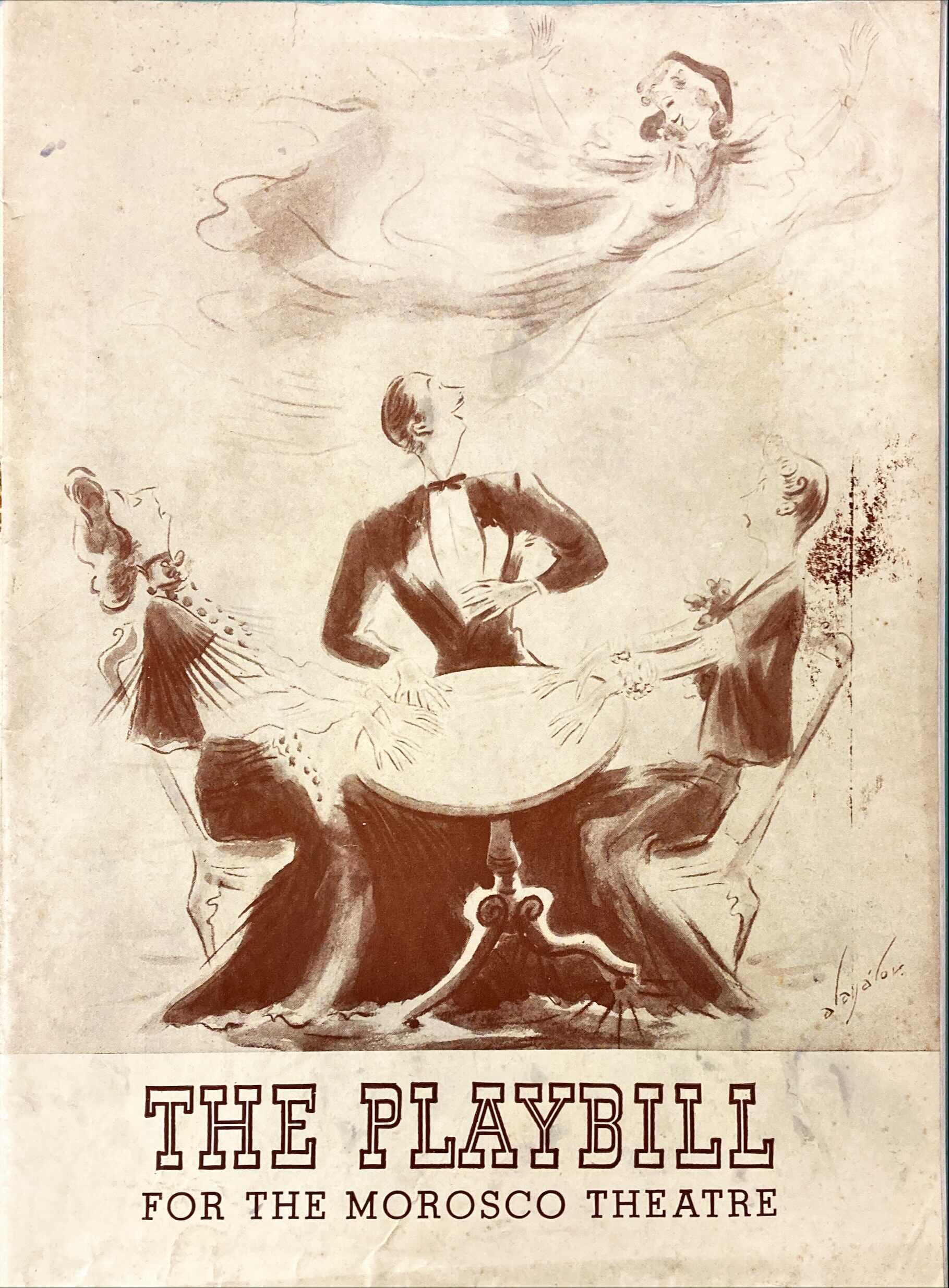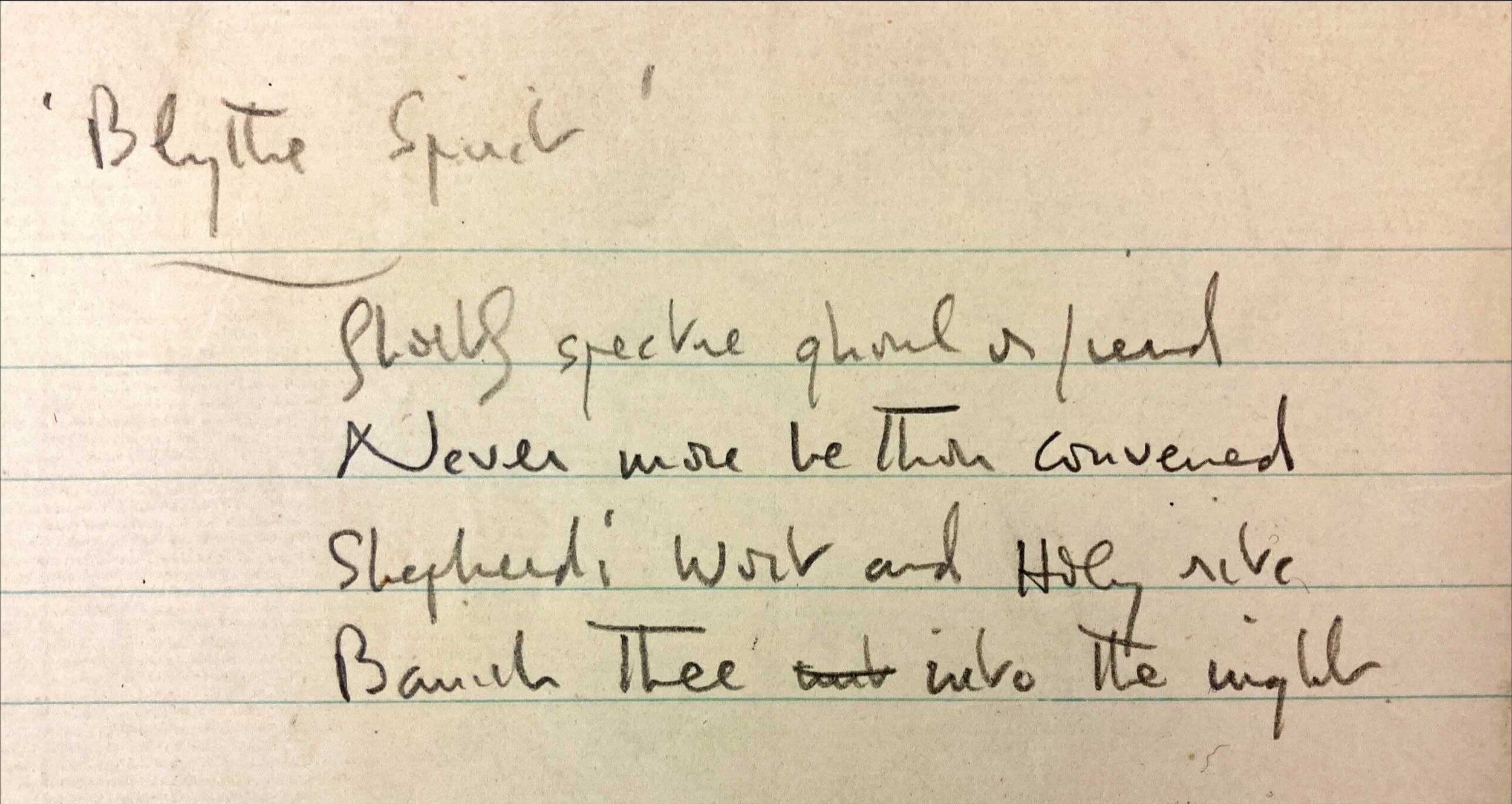Arcati… Always
Robert Hazle celebrates Coward’s most popular character and looks at the medium behind the myth…
The Inspiration:
The horrors of the Second World War provoked renewed interest in spiritualism, providing Coward with timely material for his new play. Whether deliberately fraudulent or sincere, the number of mediums was increasing, with some achieving notoriety. There was no shortage of inspirational figures. One such professional medium, suggested by Terry Castle in Kindred Spirits, was Gladys Osborne Leonard. Coward’s friend, the author Radclyffe Hall held séances to contact her dead partner, the singer Mabel Batten. They were led by Gladys Osborne Leonard, renowned for her work with the Society of Psychical Research. But a major influence on the character was a very close friend of Coward himself. Clemence Dane.
“Clemence Dane is the ‘invisible woman’ of British 20th century culture” according to her biographer Rose Collis, “Between the First and Second World Wars, she was Britain’s most influential, versatile and successful female writer and arguably the most complete and versatile female creative force: novelist, playwright, screenwriter, journalist, sculptor, painter, broadcaster, lecturer and pioneering feminist. She was the first British woman screenwriter to win an Oscar.
“And yet she remains a woefully neglected — an almost spectral figure found in so many cultural corners. So it’s rather apt that the medium Madame Arcati should have been inspired by her.”
Coward initially considered offering the role Clemence Dane herself, as she had indicated she might want to make a return to the theatre (prior to WWI, she was the stage actress ‘Diana Cortis’).
As Graham Payn, Coward’s longterm partner said, “She could have played it to perfection for precisely the same reason that Margaret Rutherford eventually did: neither of them realised that what they did was funny.”
Clemence Dane (Noel Coward Archive Trust)
“The similarities between [Dane] and Arcati are screamingly obvious:”, explains Collis, “the eccentric manner of dress; the unwavering self-assuredness; the indomitable sense that she was always right, about everything; and, as alluded to by Payn, her genuine obliviousness to her own comedic value.”
“She was renowned for her unselfconscious dropping of verbal bricks and no-nonsense candour with her friends.” notes Brad Rosenstein, Curator of Noël Coward: Art & Style at the Guildhall Art Gallery.
But according to Collis, there were also spiritual connections: “For more than 30 years, she lived above a greengrocer’s in Covent Garden, and believed it to have a resident ghost (she would often ask friends to ascend the steep steps before her).”
What did Dane think of Blithe Spirit? This unpublished poem she sent to Coward gives us an idea;
‘Imagine that her wit’s dispersal / When she attends the dress-rehearsal / Of Noël’s latest burst of laughter/ To find it deals with the hereafter/ That he by methods rather coarse. / Manipulates odyllic force; / And that – for this has hurt her most – / His heroine is just a ghost! / Oh Noël, think what you would say, / if it had been poor Winnie’s play!’
The Character:
Madame Arcati is often now perceived as the archetype of a spiritualist medium, with the typical associated esoteric beliefs and odd behaviours. But is that fair? We take a look at Arcati on the page:
At the beginning of the play, the ‘conventional’ Condomines’ expect Madame Arcati to be an unsophisticated mystic, either deluded or a fraud and as we view the events in the play through the eyes of the Condomines, it’s no surprise we’re tempted to agree. But I would argue that Madame Arcati is in fact much more ‘normal’ than she is given credit for.
Playbill for the original Broadway production (NCAT)
Much of the perception of eccentricity comes from her ‘séance’ performance. In many ways, she is far from the stereotype of the clairvoyant spiritualist which is expected by the characters in the play (and by extension, the audience). As discussed in Hail To Thee, Blithe Spirit, Coward was keen to emphasise the character’s matter-of-fact and sincerity - In the end, she is much more sincere and down-to-earth than the Condomines and their superficial sophistication. She cycles, drinks the driest of martinis and speaks directly and honestly. Indeed, so commonplace is she in many regards that it takes the other guests by surprise. Even her ‘control’, Daphne has a cold, such is the mundanity of her ghostly existence.
Arcati’s “not too extravagant” country clothes and manner set her apart from the other characters. Like Charles, she is a writer, but her interests are not in lofty works of fiction, but range from rustic children’s stories about “enchanted woods filled with highly conversational flora and fauna” to “enthusiastic biographies of minor royalty”. She is pragmatic about her projects, planning to “finish it by the end of October to catch the Christmas sales”. Her use of the book ‘Witchcraft and its Byways’ is evocative of a rural guide to a local area or its countryside walks. This rusticity is lampooned by Coward, as the hero of Arcati’s story is an unexpected “moss beetle” (perhaps she’s not completely devoid of eccentricity!)
Through her flamboyant preparations for the séance, Coward gently mocks the excesses of clairvoyant processes by subverting them. Her music of choice is popular “dance music”, she dances, she shouts, she screams, she recites nursery rhymes. All seem to lack a sense mystery and atmosphere, and yet – it works! It’s also important to note that Coward writes:
…on passing a mirror on the mantelpiece, she surveys herself critically…and adjusts her hair.”
Early draft of an incantation, from Coward’s notebooks (NCAT)
Even amongst the ridiculous dancing and chanting, it is still always just a calculated performance. Her ‘somewhat barbaric’ clothing from Act 1 returns in Act 3 – clearly something of a working uniform, different from the off-duty ‘tweeds’ in Act 2. Her return attempts involve spraying pepper, reciting from a book and waving “birch branches….solemnly to and fro”: again, rustic and domestic, not very esoteric and hardly ‘spiritual’.
It has been suggested that her name, Arcati is in itself an echo of the word “arcady’, the literary and theatrical vision of rustic paradise also known as Arcadia. Such a setting has long been popular with writers and helps to underline the contrast with the more cosmopolitan Condomines.
Coward would go on to develop the deceptively down-to-earth life of Madame Arcati in the film, when we are shown her house. The Camera shows us an overgrown, mysterious looking cottage but then pans to her actual home – a very modern, suburban house. This is an effective joke that plays on our assumptions about the character – she is actually a very ‘normal’ person.
The Actor:
It was this ability to capture the earthy ‘spirit’ of Arcati that launched Margaret Rutherford into the hearts and collective memories of the original audiences and anyone who has since seen the 1945 film. According to Barry Day in The Coward Reader, Rutherford took some persuading to take the part. She was concerned that the play was an attack on spiritualism so had be persuaded that it was an attack on fraudulent mediums. On agreeing she warned
“I regard this as a very serious play, almost a tragedy. I don’t see it as a comedy at all”.
Coward’s diaries reveal a frustration with her performance and an apparent inability to remember her lines. On June 12th, he wrote:
“In theatre most of the day, oblivious of the fact that the Germans were massing troops on the Russian frontier. Occupied only with whether or not Margaret Rutherford remembered her lines”.
Once the production opened, to rave reviews for Rutherford, he wrote:
“The great disappointment is Margaret Rutherford… I thought she would be marvellous. I need hardly say she got marvellous notices. So much for that.”
While Coward may not have liked her performance, it quickly became the template against which all other performances are judged. As an actor she still maintains an enormous popularity (just look at ‘her’ Twitter profile!). Through her performances as Miss Marple and countless other comedy films, she has become an iconic figure encapsulating a particular moment in British culture. But her gravestone bears only one title: Blithe Spirit. Above all else, in the minds of the public, she will be Arcati… Always.
In the next part, we’ll be looking at some of the famous names to have played the role over the years in Arcati Through The Ages.
We’ll be looking at Clemence Dane in more detail later in the year so make sure to follow us on social media for news about that or sign up for our newsletter below. And why not visit the Noël Coward: Art & Style exhibition where two of Dane’s portraits of Coward are currently on display?



